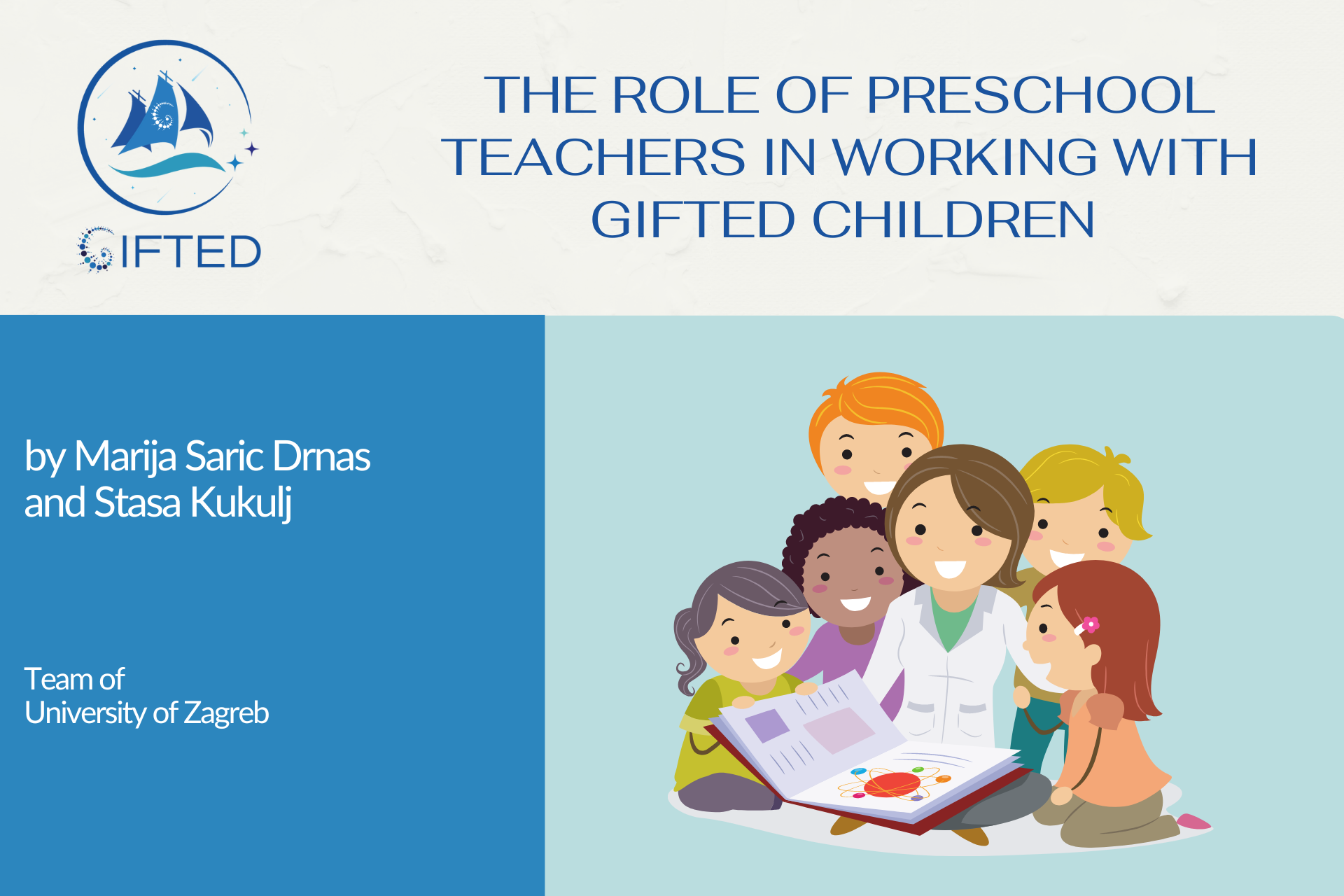Latest news

The Role of Preschool Teachers in Working with Gifted Children
By Marija Saric Drnas and Stasa Kukulj University of Zagreb
Early educational experiences form the foundation for establishing future academic success (Barnett, 2008). However, preschool upbringing and education of the gifted is the most neglected area in the field of education (Kokkalia et al., 2016). Spotting gifted children in the preschool period and implementing the necessary early interventions are important for preventing difficulties such as academic failure and social-emotional problems that may arise in the future (Dereli & Deli, 2022). Gifted children are developmentally different from average children in the physical, cognitive, linguistic and socioemotional areas (Bildiren, 2018). Koshy and Robinson (2006) have specified a list of traits and behaviors presented in gifted preschoolers including impressive memory, advanced development in attention, language, abstract reasoning, complex play patterns, curiosity, vivid imagination, maturation and socioemotional development. Therefore, it is important that early childhood educators react appropriately to the characteristics of these children. Preschool teachers are expected to take role in recognizing gifted children, restructuring their curriculum, and helping them in reaching their potential. Although teachers are familiar with general information about the characteristics of gifted children, they are not sufficiently prepared to recognize and provide various services for gifted preschoolers (Zhurat et al., 2021). In many cases, there is a lack of teacher training in gifted education (Vreys et al., 2017). In the identification of children, teachers mostly rely on professional assessment.However, teacher observations offer valuable information for the assessment of giftedness. They can observe mathematical thinking, language skills and learning ability in the giftedness assessment process (Bildiren et al., 2020). Teachers generally prefer observation because they do not feel efficient in applying other methods (Bildiren et all, 2020). Therefore, it is important to provide teachers professional competencies in recognizing, identifying, and educating gifted children. Studies show that training programs enhance theachers’ knowledge and understanding of the gifted childrens’ characteristics and needs, and help them in development of the self-confidence and skills required to effectively teach the gifted in regular groups (Vreys et al., 2018). In recent years, common educational method used with gifted children has been associated with new technologies. As educational games have a great potential to comprise the teaching content and methodologies necessary for preschool children, they can be used to upgrade existing educational methods. In this way, using online learning games, teachers may improve learning mechanisms since many gifted children like stimulating activities (Kokkalia et al., 2016).
References
Koshy, V. & Robinson, N. M. (2006) Too long neglected: Gifted young children. European Early Childhood Education Research Journal, 14(2), 113-126. https://doi.org/10.1080/13502930285209951
Barnett, W. S. (2008). Preschool education and its lasting effects: Research and policy implications. Boulder and Tempe: Education and the Public Interest Center & Education Policy Research Unit. http://epicpolicy.org/publication/preschool-education
Bildiren, A. (2018). Developmental characteristics of gifted children aged 0–6 years: parental observations. Early Child Development and Care, 188(8), 997-1011. https://doi.org/10.1080/03004430.2017.1389919
Dereli, E. & Deli, H. (2022). Pre-school teachers’ knowledge and needs related to noticing gifted children and the enrichment model. Participatory Educational Research, 9(2), 219-239. http://dx.doi.org/10.17275/per.22.37.9.2
Kokkalia, G. K., Drigas, A. S. & Economou, A. (2016). The role of games in special preschool education. International Journal of Emerging Technologies in Learning, 11(12), 30-35.
Vreys, V., Ndungbogun, N. G., Kieboom, T. & Venderickx, K. (2018) Training effects on
Belgian preschool and primary school teachers’ attitudes towards the best practices for gifted
children. High Ability Studies, 29(1), 3-22. https://doi.org/10.1080/13598139.2017.1312295
Zhurat, Y., Holyk, B. & Polishchuk, O. (2021). An Overview on the Pre-School Teachers’ Psychological Readiness while Working with Gifted and Talented Children. In M. Oliinyk, O. Clipa, & M. Stawiak-Ososinska (Eds.), Trends and prospects of the education system and educator’s professional training development (pp. 399-410). Lumen.
